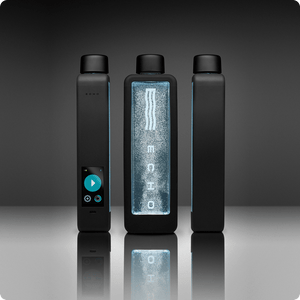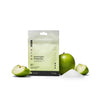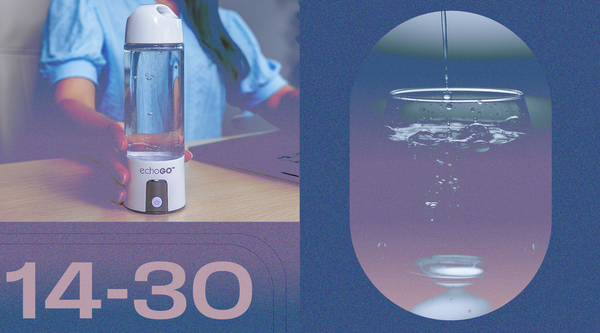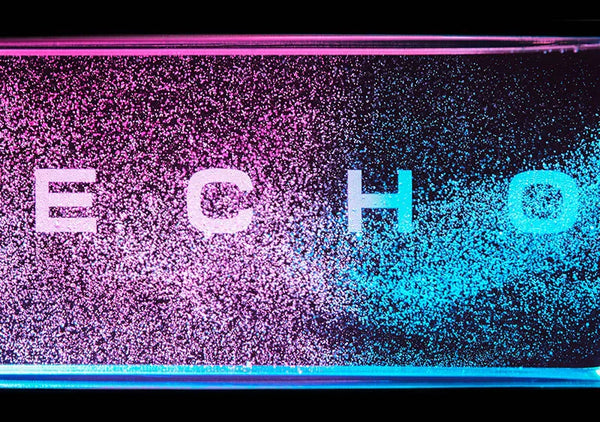It’s no secret that a hydrated mouth is a happy mouth. When our mouths are hydrated, we produce more saliva, which washes away food particles and debris. Saliva also contains minerals, like calcium and phosphate, that strengthen tooth enamel and prevent decay. It even helps break down food for easier digestion. And, let’s be serious, nobody likes the feel of a dry mouth.
So, it sounds like regular water has this whole “mouth health” thing under control.
But wait! A study conducted in 2023 found that hydrogen water provides added health benefits for our mouths. This study investigated the potential of EHW (electrolysed hydrogen-rich water) as a mouthwash by examining its effects on cariogenic bacteria (the bacteria that cause cavities).

So, instead of using a store-bought mouthwash that burns your mouth off, this study shows that you can use hydrogen water to achieve the same results. But before we get ahead of ourselves, let’s take a deeper dive into the study.
How Hydrogen Water Reduces Cavity-Causing Bacteria
The Why
Studies have already reported that electrolysed water has antioxidant and bactericidal activity. That means that the eletrolysed water can help protect cells from damage by free radicals and kill or inhibit growth of harmful bacteria that contribute to cavities.
But researchers wanted to specifically test electrolysed hydrogen-rich water (EHW) with a neutral pH on cariogenic bacteria. Essentially, they wanted to see if hydrogen water’s antioxidant and antibacterial properties could make a significant impact on oral health.
The Experiment
Step 1:
Streptococcus mutans and Streptococcus sobrinus were exposed to EHW or tap water (control) for one minute.
Translation:
Streptococcus mutans (S. mutans) and Streptococcus sobrinus are two types of bacteria found in the human mouth. They are both members of the genus Streptococcus, which is a large group of round-shaped bacteria. They feed on sugars in your diet. As they digest these sugars, they produce acid as a byproduct. This acid gradually erodes tooth enamel, leading to cavities if left unchecked.
Step 2:
Bacterial growth curves, colony-forming unit (CFU) counts, and crystal violet staining of biofilms were examined.
Translation:
Crystal violet staining is a common technique used in microbiology labs to visualize and quantify biofilms. Biofilms are communities of bacteria that stick together and adhere to surfaces. They can be difficult to detect because they are often transparent and slimy.
Step 3:
The expressions of genes encoding glucosyltransferases (gtfB, gtfC, and gtfI) and glucan-binding proteins (gbpC and dblB) were also examined.
Translation:
Both of these proteins (glucosyltransferases and glucan-binding proteins) are found in bacteria like Streptococcus mutans, a major culprit in tooth decay.
The Results
- EHW inhibited bacterial growth and biofilm formation.
- The number of CFUs was significantly reduced in the EHW group compared to the control group.
- The expression of genes encoding glucosyltransferases and glucan-binding proteins were also decreased in the EHW group compared to the control.
The Conclusion
EHW can effectively inhibit bacterial growth and biofilm formation in cavity-causing bacteria. Which suggests that EHW is a promising mouthwash.
How Can Hydrogen Water Improve My Oral Health?
As more studies are done on hydrogen water’s oral health benefits, we’re going to see some new practices from dentists and periodontists and in biomimetic dentistry. (Biomimetic dentistry is a dental approach that focuses on mimicking nature's methods to preserve and restore teeth.)

Here are some ways EHW could change the way dental health professionals treat oral health issues:
Overall Oral Health: EHW reduces cavity-causing bacteria, which means it can be a useful tool to improve overall oral hygiene. Dentists and periodontists can recommend EHW to their patients who don’t like the strong sensation of traditional mouthwashes.
Improved Preventive Care Options: Dentists, periodontists, and biomimetic dentists can start recommending hydrogen water as a new tool for patients to improve their oral hygiene routine. This could be particularly helpful for patients at high risk of cavities.
Indirect Impact on Gum Health: While EHW doesn’t directly target gum disease itself, reducing cariogenic bacteria indirectly benefits periodontal tissues. Less plaque buildup from these bacteria means less inflammation and irritation of the gums, which is a risk factor for periodontal disease.
Pre-procedural Rinse: EHW can be used as a pre-procedural rinse before certain dental procedures to reduce the bacterial load in the mouth. This could minimize the risk of infection during minimally invasive procedures like composite fillings or adhesive dentistry techniques.
This study on electrolyzed hydrogen-rich water (EHW) offers a glimpse into a potentially exciting new tool for oral hygiene. For dentists, EHW could expand the options they recommend for patients to fight cavities. Periodontists might find it indirectly beneficial for gum health by reducing cariogenic bacteria. And biomimetic dentists could potentially utilize EHW as part of their pre-procedural routine. Overall, this study paves the way for further exploration of EHW's potential to improve oral health.
If you want to incorporate hydrogen water into your daily routine to improve your oral health, check out some of Echo’s hydrogen water bottles.







